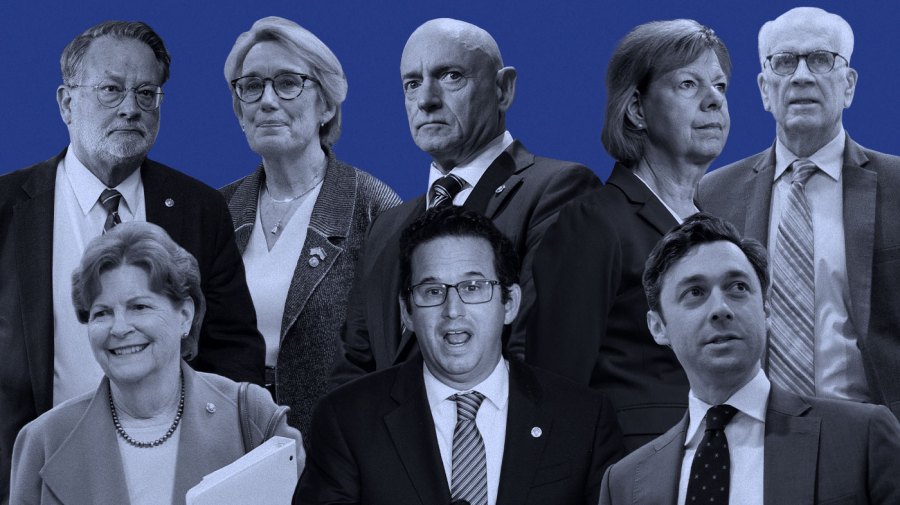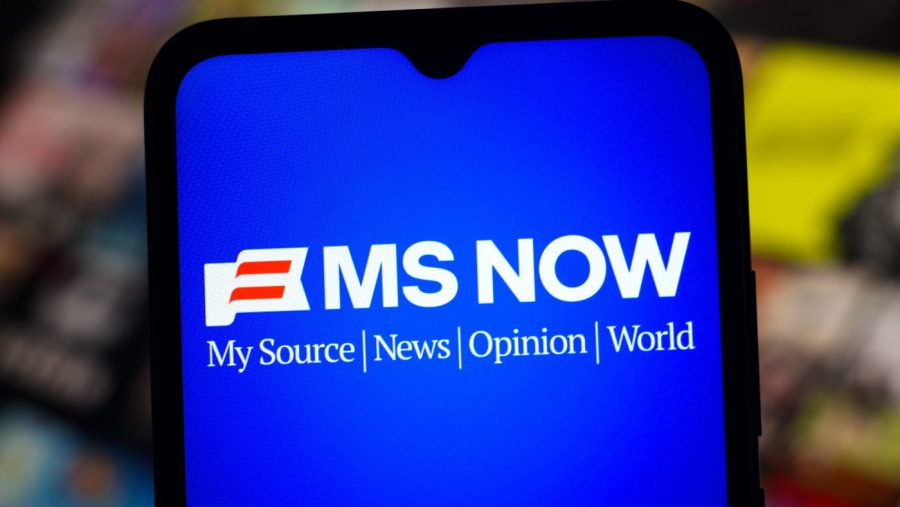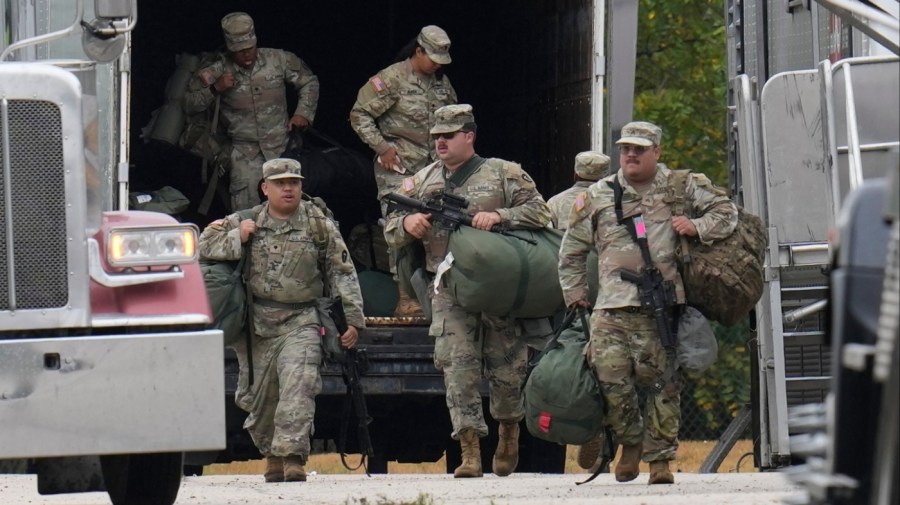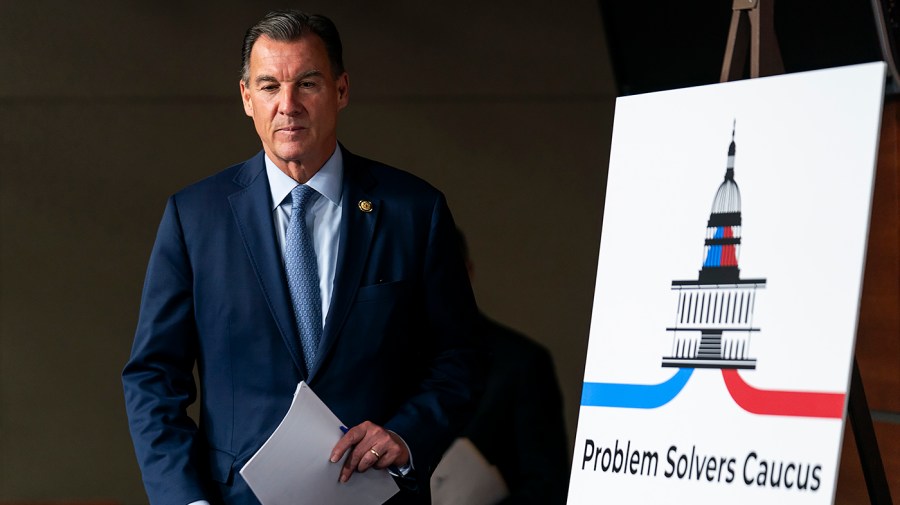
At least eight moderate Senate Democrats are meeting in hopes of striking a deal to end the months-long government shutdown, but sources familiar with close talks say they will need strong assurances from the GOP before voting to reopen the government.
Sources told The Hill that eight Democrats, including Senators Jeanne Shaheen (N.H.) and Jon Ossoff (Ga.), who are top Republican targets in 2026, will need to feel comfortable with whatever Senate Majority Leader John Thune (R-S.D.) offers, and they may need to hear from President Trump himself.
The group gathered in the Capitol basement during the vote Thursday, trying to put itself in position to end the shutdown before the scheduled Veterans Day recess.
“The bipartisan conversation continues and that’s a good sign,” Ossoff told The Hill.
Asked how optimistic he was about reaching an agreement this week, Ossoff, who voted earlier this month to keep essential federal workers paid during the shutdown, said, “We need a proposal that is right by our constituents.”
“My constituents don’t want their health insurance premiums to go up, they want the government to reopen,” he said. “It’s good that the bipartisan conversation continues.”
The senators most likely to vote for a clean continuing resolution to reopen the government are Shaheen, Ossoff and Sens. Gary Peters (D-Mich.), Mark Kelly (D-Ariz.), Maggie Hassan (D-N.H.), Peter Welch (D-Vt.), Tammy Baldwin (D-Wis.) and Elissa Slotkin (D-Mich.).
Eight lawmakers were seen leaving a meeting in a secret hideout at the Capitol on Thursday before the Senate adjourned for the week, and some of them, including Shaheen and Kelly, said they wanted the chamber to remain in session over the weekend to complete the deal.
Along with Sens. John Fetterman (D-Pa.), Catherine Cortez Masto (D-Nev.) and Angus King (I-Maine), they will be able to provide more than enough votes to reopen federal departments and agencies this week.
Fetterman, Cortez Masto and King have repeatedly voted for the House-passed bill to fund the government through November 21.
A Democratic senator who requested anonymity to comment on the possibility of a deal this week said Senate Democratic leader Chuck Schumer (NY) is eager to end the shutdown after funding for Supplemental Nutrition Assistance Program (SNAP) benefits ends and the Affordable Care Act health insurance marketplace’s open enrollment period begins Nov. 1.
“They don’t want to go through another week with federal workers not getting paid and food banks closed,” the Democratic lawmaker said, referring to Democratic colleagues eager to reopen the government later this week.
The senator said Schumer, who is under intense pressure from the party’s moderate base not to capitulate to Republicans, will not vote for the House-passed bill to reopen the government. But he is not going to act on liberal colleagues who change their stance and vote for it.
“This is not going to incite a war, that’s just the way it works here,” the senator said of a group of centrist Democrats breaking with Schumer and the possibility of members of his leadership team voting with Republicans to reopen the government.
The expiration of SNAP benefits on Nov. 1 is a major source of concern for Democratic senators who are looking for a face-saving reason to reopen the government.
Fetterman, who has repeatedly voted for House-passed funding bills, said denying food assistance to nearly 42 million Americans would be a “betrayal” of Democratic values.
He said the lapse in SNAP benefits would affect 2 million people in Pennsylvania.
He said, “I have no answer for them. I am apologizing to the people. It is a complete failure.”
She asked what would happen to mothers with “two or three children” when their electronic benefits transfer cards became empty.
“We are being brutalized to that point and it is disgusting,” he said. “I am very disappointed.”
Fetterman said that many of his Democratic colleagues are “afraid” of the liberal base of the Democratic Party.
“The difference between me and them is they’re afraid of the base and I’m not,” he said. “If it’s wrong for a Democrat to say, ‘Feed 2 million people in my state.’ SNAP recipients, this is the core, core, core part of our base. These are the people we really fight for. This is a fundamental betrayal of our values.”
Senator Ruben Gallego (D-Ariz.) sought unanimous consent in the Senate last week to pass a bill to defund SNAP and the Special Supplemental Nutrition Program for Women, Infants and Children (WIC) during the shutdown, but Thune objected.
Thune accused Democrats of trying to turn federal funding of SNAP and WIC into a “political game.”
Sources familiar with the talks say the talks remain highly “sensitive” and caution that a solid assurance is needed from Thune that Trump and Speaker Mike Johnson (R-La.) will seriously consider any proposal to extend health insurance subsidies that passes the Senate.
Thune has promised Democrats a vote on any bill they want to put on the Senate floor to extend health insurance subsidies increased under the Affordable Care Act that expires in January.
He also promised that Trump is ready to negotiate with Democrats on reducing health care costs as soon as the government reopens.
“The President likes to negotiate and I don’t know what will happen with it. I can’t predict it. What I’ve told the Democrats here is that I can’t guarantee any outcome or outcome,” Thune said Thursday afternoon.
He said, “What I can promise them is a process. They will get their vote and they can get their vote by a certain date, which … initially, at least, a lot of them were asking for.”
Moderate Democrats are considering whether Thune could help them deliver a bill to keep health insurance premiums under control that could pass the House and secure Trump’s signature.
Senator Mark Warner (D-Va.), a leading centrist who is up for re-election next year, said he is skeptical of any deal with Republicans that does not have Trump’s blessing.
“I’m concerned that many of my Republican friends, who I know are concerned about the government shutdown, health care costs, SNAP benefits – I’m concerned … are they willing to put that deal through with the president’s signature,” he said.
“Unlike in the past, we probably have to involve the president deeply,” he said. “It goes back to trust.”












